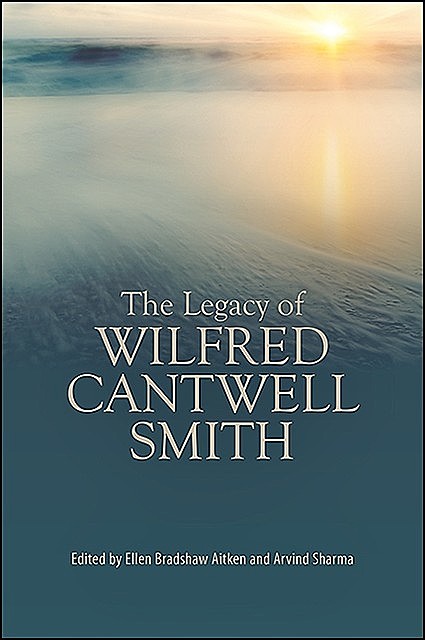We use cookies to improve the Bookmate website experience and our recommendations.
To learn more, please read our Cookie Policy.
To learn more, please read our Cookie Policy.
Accept All Cookies
Cookie Settings
Something went wrong. Try again.

Read in our apps:
iOS
·Android
Arvind Sharma,Ellen Bradshaw Aitken
Legacy of Wilfred Cantwell Smith, The
Notify me when the book’s added
Impression
Add to shelf
Already read
Report an error in the book
Share
Facebook
Twitter
Copy link
To read this book, upload an EPUB or FB2 file to Bookmate. How do I upload a book?
First work to address the legacy of Wilfred Cantwell Smith and his influence on the development of religious studies and Islamic studies in the twentieth century.
This is the first work to address the legacy of Wilfred Cantwell Smith (1916–2000), whose intellectual and institutional contributions helped shape the field of religious studies in the latter half of the twentieth century. As a young scholar, Smith taught Indian and Islamic history in Lahore for several years and witnessed the partition of India. Upon his return to North America, he obtained his PhD at Princeton University before embarking upon a long and distinguished career. He founded the Institute of Islamic Studies at McGill University and served as director of the Center for the Study of World Religions at Harvard University. Smith emphasized the place of the scholarly study of Islam in the Western academy long before Islam occupied its current position at the center of global politics, challenged the notion of monolithic world religions, and argued for the importance of dialogical processes and a personalist approach to the study of religion. Contributors to this volume, many of whom were Smith’s students, provide a wide-ranging exploration of his influence and legacy.
Ellen Aitken (1961–2014) was the Dean of the Faculty of Religious Studies at McGill University. Arvind Sharma is Birks Professor of Comparative Religion at McGill University and the author of many books, including One Religion Too Many: The Religiously Comparative Reflections of a Comparatively Religious Hindu; Hinduism as a Missionary Religion; and Religious Studies and Comparative Methodology: The Case for Reciprocal Illumination, all also published by SUNY Press.
This is the first work to address the legacy of Wilfred Cantwell Smith (1916–2000), whose intellectual and institutional contributions helped shape the field of religious studies in the latter half of the twentieth century. As a young scholar, Smith taught Indian and Islamic history in Lahore for several years and witnessed the partition of India. Upon his return to North America, he obtained his PhD at Princeton University before embarking upon a long and distinguished career. He founded the Institute of Islamic Studies at McGill University and served as director of the Center for the Study of World Religions at Harvard University. Smith emphasized the place of the scholarly study of Islam in the Western academy long before Islam occupied its current position at the center of global politics, challenged the notion of monolithic world religions, and argued for the importance of dialogical processes and a personalist approach to the study of religion. Contributors to this volume, many of whom were Smith’s students, provide a wide-ranging exploration of his influence and legacy.
Ellen Aitken (1961–2014) was the Dean of the Faculty of Religious Studies at McGill University. Arvind Sharma is Birks Professor of Comparative Religion at McGill University and the author of many books, including One Religion Too Many: The Religiously Comparative Reflections of a Comparatively Religious Hindu; Hinduism as a Missionary Religion; and Religious Studies and Comparative Methodology: The Case for Reciprocal Illumination, all also published by SUNY Press.
more
This book is currently unavailable
382 printed pages
- Original publication
- 2017
- Publication year
- 2017
Have you already read it? How did you like it?
👍👎
fb2epub
Drag & drop your files
(not more than 5 at once)

